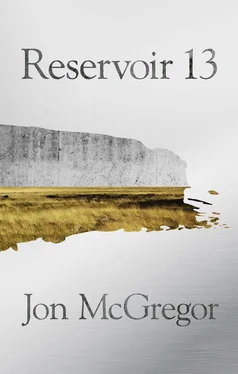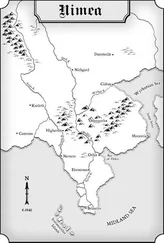Martin Fowler was working at the meat counter in the new supermarket when his daughter called and asked him to come to the hospital, and when he got there he was a grandfather. Would someone tell me why I wasn’t told, he kept saying, holding the walnut-faced thing in his big hands. You’re here now, Dad, Amy said. We didn’t want you worrying. Ruth stepped across and took the child back, kissing him on the cheek as she did so. Congratulations, Grandad, she said. His hands shook with nothing to hold. He looked around the room. Amy’s fellow was sat on the side of Amy’s bed, looking mostly at his feet. This was the first time Martin had met him. He wasn’t sure of the name. None of this was the way he’d planned things as ending up by now. Bloody plans what, he said. He hadn’t meant to say it out loud. He coughed, and said he was going out for some fresh air. They called the boy Luke and told Martin he was welcome to come over. Ruth made a point of saying so. Amy and Luke would be at Ruth’s house to start with, while the fellow found them a place to live. Why hadn’t he sorted that already, Martin wanted to know. But he didn’t ask. It was a fortnight before he got over to Harefield, bringing a gift of clothes that would no longer fit. It was as though they’d swapped the child for another. The screw-eyed palmful from the hospital was gone. This one had a whole extra heft to him. Ruth took him upstairs for a nap, and Martin was left alone with Amy. There was an opportunity for him to make an apology but it went past. They sat and he offered to make a tea.
What Irene knew was cleaning. Whatever else was happening or became impossible to understand, she kept up the cleaning. The paid work, of course, but she made a point as well of keeping her own house presentable. Years now since anyone had paid a visit, because of Andrew and the damage he had wrought, and the way she feared he would respond to guests. But she worked to keep the place as though someone was going to call at any moment. Because they might. She might not be able to keep them on the doorstep, or make a show of being on her way out. They might come in and see how his computer equipment had taken over the front room and the hallway and the kitchen, the cables everywhere, the strange system of lights above the doors. They might see the split doorframes, the broken cupboard doors. But they wouldn’t be able to say she wasn’t keeping the place clean. They couldn’t say that. There was a lot she didn’t understand. But cleaning she knew. There was a small patch of wild redcurrant on the riverbank below the weir, and when the flowers came out at the end of May she clambered down from the path to gather a basketful. She took them home and for the next week or so was able to sit alone at her kitchen table and savour the rough pink tea they made and remember childhood’s first taste of this. It was a way to feel summer’s approach. The Millennium Millstones were pushed off their plinths again, and this time one of them split. There was a fight in the Gladstone, and talk it had something to do with Facebook. On the television there were pictures of explosions, fires, collapses, collisions. Broad beans started coming off the allotments by the carrier-bagful, and were shucked into saucepans from their softly lined pods. The gentle cushioning of the broad-bean pod was one of nature’s senseless excesses. The work was a tedious delight. In his studio Geoff Simmons took each newly fired pot from the tray and smashed it against the floor. He worked at a methodical pace. The rhythm was soothing. He had asked her not to come and see him again and she had not responded well. There was no reason now to keep the work her hands had touched. The whippet was wound up outside the door and making a racket. The pieces of pot were thin and white and clean. It seemed she hadn’t understood the worth his work had to him. He smashed the pots very evenly across the floor. It was a careful process. He was never not in control. When it was done he took the whippet for a slow walk and left the door hanging open. What had she expected, was his feeling. The reservoir was low and the river slowed between the gravel banks. Tom Jackson was seen walking out with Ashleigh Wright.
In the morning a mist hung over the fields of the kind that would once have been seen as a cue. Jackson banged his stick on the wall and Gordon went through to see what was wanted. He was checking we’d noticed it’s cutting weather, he told the others. I told him we’d already seen. Maisie asked whether he’d set Jackson straight and Gordon said of course not. In his room Jackson looked at the mist lifting around the church tower and felt an ache in his shoulders at the thought of a long day’s cutting ahead; the smell of the sap as it fell in the field, the long steady evenings barely turning blue as the swallows came out to feed. He caught himself, and turned on the radio. It was too easy to be nostalgic when it wasn’t you doing the work. He sent a prayer through the door to the boys. They’d have a full day ahead. He turned away from the window. Mrs Simpson took early retirement from the school with ill health. There was discretion about what this meant, but it wasn’t felt appropriate to hold a retirement do. She was sent a huge number of cards and her children read some of them out to her. Cooper wrote an article about her in the Echo . The weeks were long and cloudless and the sun scorched a passage through the days. The family who lived at Culshaw Hall put the estate on the market. At the top end of the beech wood a badger held a hedgehog down on its back and peeled it open. The well-dressing boards stood for just short of a week, with the crowds up on previous years and Jim Stephenson’s brass band from the high school playing over the weekend. By Thursday the wind had dried out the clay and the petals were starting to fade. The decision was made to pack up. Richard’s mother came home from hospital, and Rachel took time off work. There were care-workers who visited twice a day to help her wash and dress, and make sure she took all her medications, and although they always seemed rushed Rachel soon realised she wasn’t needed. Irene and Winnie came in most days, and the talk they had about the village went over Rachel’s head. She’d been planning to stay on until Richard came the next month, but in the end she left before he arrived. At Reservoir no. 2 there were divers going down to work on the gate valves at the foot of the towers. The maintenance team watched the screens in the van as the divers made their way through the water. In the white light there were bubbles and plumes of silt and then the first gate valve came into sight. The voice of the diver from inside his helmet was clear and close, as though he’d been standing outside the van all along. On the crest of the dam the men held the ropes and looked down at the dark surface of the water.
One evening in midsummer Gordon Jackson took Susanna Wright for a drive in his Land Rover. She’d mentioned wanting to see the wind turbines up close, and he’d taken that as an invitation to offer. This was how it went. He was never forward. He waited for situations to arise. He’d been waiting for Susanna for years. A quick conversation, a joke, an offer of help. Eyes. But he never said anything. That wasn’t him. He was careful in a way he didn’t need to think about. He never made a suggestion; never put himself in a position where there could be a refusal. It was the refusals that would get talked about, had always been his sense. The ones who went through with it had more of an interest in being discreet. He only had to steer a situation towards a possibility until the possible became likely and the likely a done thing. A good sheepdog never needs to bark, was how he thought of it. He looked at Susanna now. It had taken time but she seemed interested at last. She was looking out of the window and she had that thoughtful face. He wanted to lean over and kiss her neck but he held back. She was a fine-looking woman and he’d been watching. She’d been on her own for a long time and he’d found himself thinking of breakfasts in her kitchen, nights in front of her TV. He stopped the Land Rover where the new road went closest to the turbines and asked if this was okay. Asked if she was ready. Eye contact, careful silence. There was a pattern. They got out and looked up at the turbine. The wind was down and the blades were turning slowly. The sun was low and the shadows fell long across the ground. He looked at her. He could smell the warmth of her skin and he knew already how it would taste. She stood beside him and told him that she was flattered but she wasn’t interested in that way. It was a shock but he kept steady. He didn’t pretend not to know what she meant. He nodded, and held his hands up in the gesture of someone losing a small stake at the races. He tapped his nose as if to say that this could be their secret, but she only raised an eyebrow and moved away. She took photographs of the turbine with her phone. When they drove back down the hill his discomfort wasn’t so much about the rejection as it was the fear that now conversations would be had and all his discretions begin to unravel. He couldn’t afford for that to happen. The days were getting shorter already but they were still so full that no one really noticed. The woodpigeons’ eggs were hatching out, and the squabs being fed on crop milk. The sheep had started shedding the wool around their necks and the shearing was due. Will Jackson took his son to bring them down to the pens. The boy knew how to work with animals now. He knew about their distances, and how to lead them from behind. He knew how they understood the rattle of a bucket. The two of them worked together without fuss and had them penned by lunchtime. The shearers were ready. The sound of the milk tanker pumping the morning collection came from Thompson’s farm on the far side of the valley, a low murmur through the heavy summer air. Richard’s mother died while he was out of the country, and it was two days before he could get back. His sisters had come up and cleared the bedroom by then, aired the house, made arrangements with the undertakers. There was little left for him to do. They told him they understood. They gave him directions to the undertakers’, and didn’t offer to go with him. She’d died in bed, according to the doctor, possibly in her sleep. He stayed long enough for the funeral, and saw her buried in the same grave as his father. There are going to be some difficult conversations ahead, he managed to tell his sisters. And now is not the time, Sarah replied.
Читать дальше
Конец ознакомительного отрывка
Купить книгу












